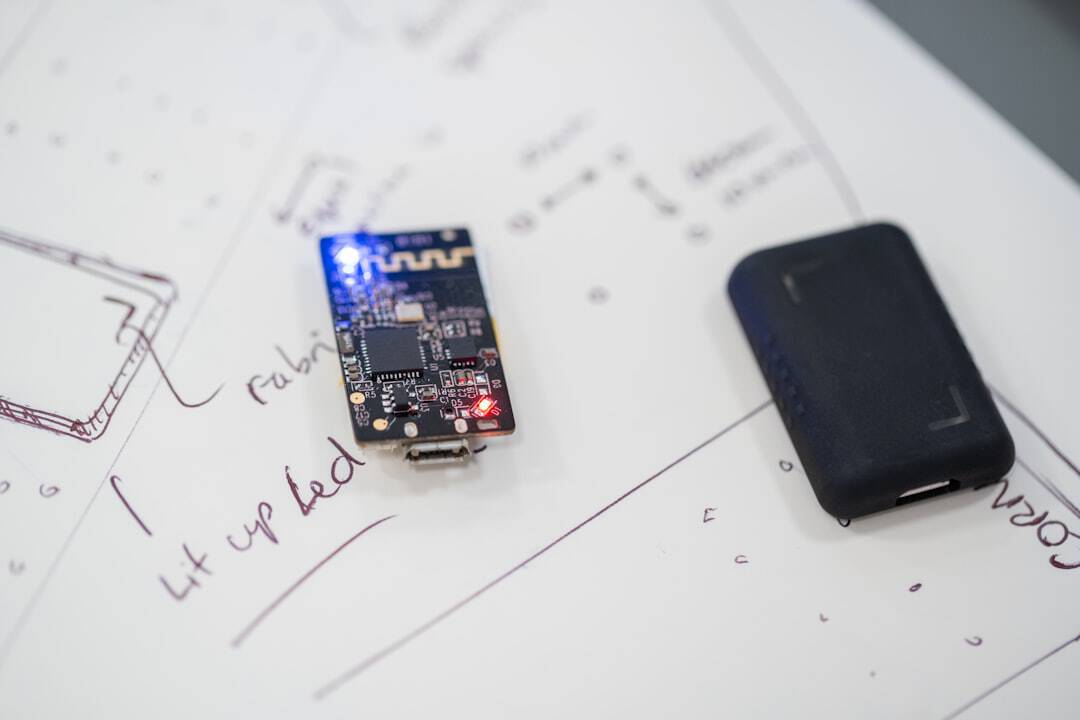The metaverse represents a transformative shift in how individuals engage with one another in digital spaces, merging the physical and virtual worlds into a cohesive experience. Defined as a collective virtual shared space, the metaverse encompasses augmented reality (AR), virtual reality (VR), and the internet, allowing users to interact in real-time through avatars and digital representations. This immersive environment has the potential to reshape social interactions by providing new avenues for connection, collaboration, and community building.
As people increasingly turn to these digital realms for socialization, work, and entertainment, understanding the dynamics of interaction within the metaverse becomes crucial. The metaverse not only facilitates communication but also introduces unique challenges and opportunities that require a reevaluation of how we engage with one another. In this evolving landscape, establishing etiquette and norms is paramount to fostering a respectful and enjoyable environment for all participants.
Just as traditional social settings have their own codes of conduct, the metaverse necessitates a framework of digital manners that can guide interactions and mitigate conflicts. The importance of these guidelines cannot be overstated; they serve as the foundation for building trust and understanding among users who may come from diverse backgrounds and cultures. As individuals navigate this new frontier, the cultivation of etiquette will play a vital role in ensuring that virtual interactions are not only productive but also enriching, allowing for meaningful connections that transcend geographical boundaries.
Key Takeaways
- The metaverse plays a significant role in shaping virtual social interactions and requires the establishment of etiquette and norms.
- Virtual reality behavior can greatly influence social interactions in the metaverse, emphasizing the need for digital manners and civility.
- Emerging norms and expectations for behavior in the metaverse present challenges in establishing social norms in a rapidly evolving digital landscape.
- Politeness and respect are crucial in virtual interactions and can enhance the overall experience in the metaverse.
- Specific guidelines and rules for maintaining civility in the metaverse are essential, with potential consequences for disregarding virtual etiquette and manners.
Understanding Virtual Reality Behavior and Its Influence on Social Etiquette
Understanding Virtual Reality Behavior in the Metaverse
Virtual reality behavior significantly influences how individuals interact within the metaverse, shaping perceptions and expectations in profound ways. In VR environments, users often embody avatars that can express emotions, gestures, and reactions, creating a sense of presence that mimics real-life interactions. This heightened sense of immersion can lead to more authentic connections; however, it also raises questions about accountability and behavior.
The Impact of Anonymity on Virtual Interactions
For instance, the anonymity afforded by avatars may embolden some users to act in ways they would not in face-to-face situations, leading to instances of rudeness or aggression. Understanding these dynamics is essential for developing appropriate social etiquette that encourages positive interactions while discouraging negative behavior. The need for digital manners in virtual environments is underscored by the potential consequences of poor behavior.
The Importance of Digital Civility in Virtual Spaces
Just as in physical spaces, a lack of civility can lead to misunderstandings, conflicts, and a toxic atmosphere that detracts from the overall experience. Establishing a culture of respect and consideration is vital for fostering an inclusive community where all participants feel valued and safe. This involves not only adhering to established norms but also actively promoting kindness and empathy in interactions.
Creating a Harmonious Virtual Society
As users become more aware of their behavior’s impact on others, they can contribute to a more harmonious virtual society that enhances the richness of shared experiences.

As the metaverse continues to evolve, so too do the norms and expectations surrounding behavior within these digital spaces. Emerging norms often reflect a blend of traditional social etiquette and new practices unique to virtual environments. For example, while greetings and farewells remain essential components of interaction, the manner in which they are expressed may differ significantly from real-world customs.
Users may find themselves navigating a landscape where gestures, voice modulation, and even spatial awareness play critical roles in communication. Recognizing these nuances is key to successfully engaging with others in the metaverse and ensuring that interactions are both respectful and enjoyable. However, establishing social norms in such a rapidly changing digital landscape presents its own set of challenges.
The diversity of users—each bringing their own cultural backgrounds, values, and expectations—can lead to misunderstandings or conflicting interpretations of acceptable behavior. Moreover, as technology advances and new platforms emerge, the rules governing interaction may shift, requiring users to adapt continually. This fluidity necessitates ongoing dialogue among community members to define and refine acceptable practices.
By fostering an environment where feedback is welcomed and discussions about etiquette are encouraged, users can collaboratively shape a virtual society that reflects shared values while accommodating individual differences.
The Role of Politeness and Respect in the Metaverse
Politeness and respect are foundational elements of successful interactions in the metaverse, serving as cornerstones for building positive relationships among users. In virtual environments where anonymity can sometimes lead to disinhibition, maintaining a standard of politeness becomes even more critical. Simple acts of courtesy—such as saying “please” and “thank you,” acknowledging others’ contributions, or being mindful of personal space—can significantly enhance the quality of interactions.
These behaviors not only foster goodwill but also create an atmosphere where individuals feel comfortable expressing themselves without fear of ridicule or hostility. Furthermore, virtual politeness can enhance the overall experience within the metaverse by promoting collaboration and creativity. When users approach interactions with respect and consideration, they are more likely to engage constructively with one another, leading to fruitful exchanges of ideas and perspectives.
This collaborative spirit is essential for building communities that thrive on shared interests and goals. As users embrace politeness as a guiding principle in their virtual interactions, they contribute to a culture that values inclusivity and support, ultimately enriching the metaverse experience for everyone involved.
Establishing Guidelines for Virtual Civility
To maintain civility in the metaverse, it is essential to establish clear guidelines that outline acceptable behavior for all participants. These guidelines should encompass various aspects of interaction, including communication styles, conflict resolution strategies, and respect for personal boundaries. For instance, users should be encouraged to communicate openly but respectfully, avoiding aggressive language or personal attacks.
Additionally, guidelines could emphasize the importance of listening actively to others’ viewpoints and being willing to engage in constructive dialogue rather than resorting to dismissive or confrontational tactics. The potential consequences of disregarding virtual etiquette can be significant, ranging from social ostracism to more severe repercussions such as account suspension or banning from platforms. Such measures underscore the importance of adhering to established norms; when individuals fail to respect these guidelines, they not only jeopardize their own standing within the community but also contribute to an environment that may deter others from participating.
By promoting awareness of these consequences and encouraging adherence to civility guidelines, users can collectively foster a more positive virtual society where everyone feels empowered to engage meaningfully.
Addressing the Challenges of Miscommunication and Misinterpretation in Virtual Interactions

Miscommunication and misinterpretation are inherent challenges in virtual interactions, often arising from the limitations of non-verbal cues in digital environments. In face-to-face communication, body language, tone of voice, and facial expressions play crucial roles in conveying meaning; however, these elements can be diminished or entirely absent in the metaverse. As a result, messages may be misconstrued or taken out of context, leading to misunderstandings that can escalate into conflicts if not addressed promptly.
Recognizing this potential for miscommunication is essential for users seeking to navigate virtual interactions effectively. To mitigate misunderstandings in the metaverse, individuals can adopt several strategies aimed at enhancing clarity in communication. First and foremost, being explicit about intentions can help prevent misinterpretations; users should strive to articulate their thoughts clearly while avoiding ambiguous language that could lead to confusion.
Additionally, employing active listening techniques—such as paraphrasing what others have said or asking clarifying questions—can foster better understanding among participants. By prioritizing open communication and demonstrating a willingness to resolve conflicts amicably, users can create an environment where misunderstandings are minimized and relationships are strengthened.
The Evolution of Social Etiquette in the Digital Age
The evolution of social etiquette from physical spaces to the metaverse reflects broader societal changes driven by technological advancements. In earlier times, social norms were largely dictated by face-to-face interactions within specific cultural contexts; however, as digital communication became more prevalent, these norms began to adapt to new mediums. The rise of social media platforms introduced new forms of interaction characterized by brevity and immediacy, prompting shifts in how individuals express themselves online.
As we transition into the metaverse—a space that combines elements of both physical presence and digital interaction—these evolving norms continue to shape our understanding of acceptable behavior. Moreover, digital manners are not static; they evolve in response to emerging technologies and user experiences within various platforms. For instance, as virtual reality becomes more mainstream, users may develop new conventions around avatar representation or spatial awareness that reflect their unique experiences in these immersive environments.
This ongoing evolution necessitates continuous reflection on how we engage with one another online and encourages users to remain adaptable as they navigate shifting social landscapes. By embracing this fluidity in social etiquette, individuals can contribute positively to the development of a respectful virtual society that honors both tradition and innovation.
Embracing Virtual Civility and Adapting to the New Social Etiquette in the Metaverse
In conclusion, embracing virtual civility is essential for fostering a positive atmosphere within the metaverse—a space that holds immense potential for connection and collaboration among diverse individuals. As we navigate this new digital frontier, adhering to established social etiquette becomes increasingly important for ensuring respectful interactions that enhance our collective experiences. By recognizing the impact of our behavior on others and actively contributing to a culture of kindness and consideration, we can help shape a virtual society that reflects our shared values while accommodating individual differences.
Encouraging readers to reflect on their actions within these digital spaces is vital for cultivating an environment where everyone feels welcome and valued. As we adapt to new social norms in the metaverse, let us commit ourselves to practicing empathy and respect in our interactions with others. By doing so, we not only enrich our own experiences but also contribute positively to the broader community—creating a vibrant virtual world where meaningful connections can flourish amidst diversity.
In exploring the evolving norms of behavior within virtual environments, it’s essential to consider the ethical implications that these digital spaces present. A related article that delves into this topic is Challenges and Opportunities in the Metaverse: Ethical Considerations. This piece examines the complex ethical landscape of the metaverse, discussing how virtual interactions can impact real-world values and ethics. It provides a comprehensive overview that complements the discussion on virtual civility, making it a must-read for anyone interested in the broader societal implications of our interactions in digital realms.
FAQs
What is the metaverse?
The metaverse is a collective virtual shared space, created by the convergence of virtually enhanced physical reality and physically persistent virtual reality. It is a space where users can interact with a computer-generated environment and other users.
Social etiquette in the metaverse refers to the rules and norms that govern behavior and interactions in virtual environments. It includes guidelines for communication, respect for others, and appropriate behavior in virtual spaces.
Social etiquette is important in the metaverse to ensure a positive and respectful environment for all users. It helps to prevent harassment, bullying, and other negative behaviors, and promotes a sense of community and civility in virtual spaces.
Examples of social etiquette in the metaverse include using respectful language and tone in communication, respecting personal space and boundaries of other users, and refraining from disruptive or offensive behavior.
How can users promote virtual civility in the metaverse?
Users can promote virtual civility in the metaverse by following established guidelines for social etiquette, reporting inappropriate behavior to platform administrators, and setting a positive example for others through their own behavior and interactions.











Leave a Reply